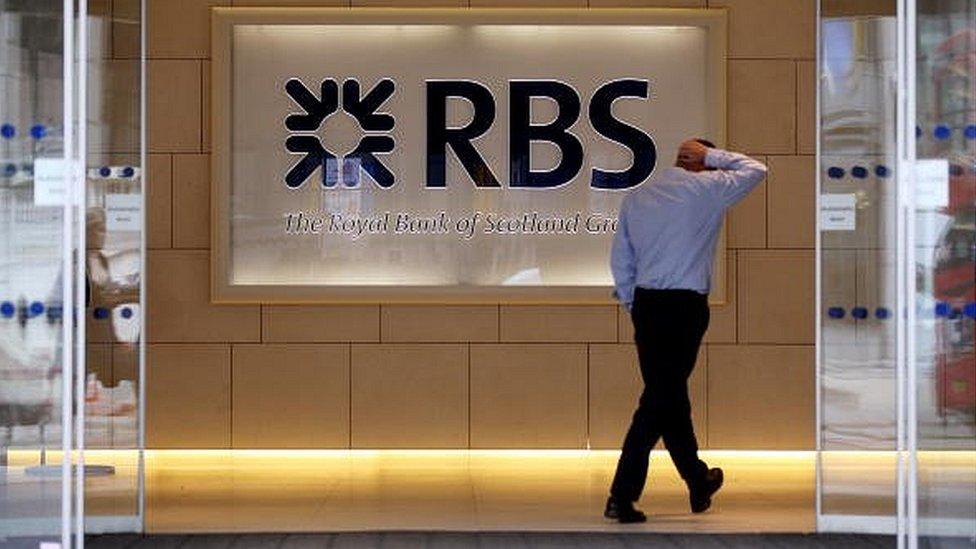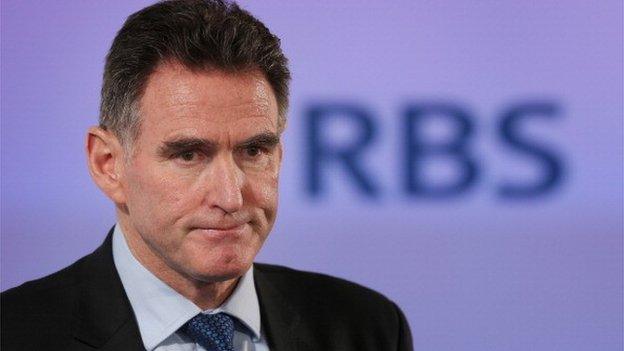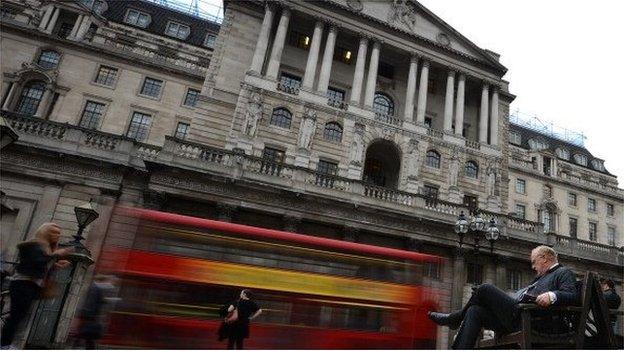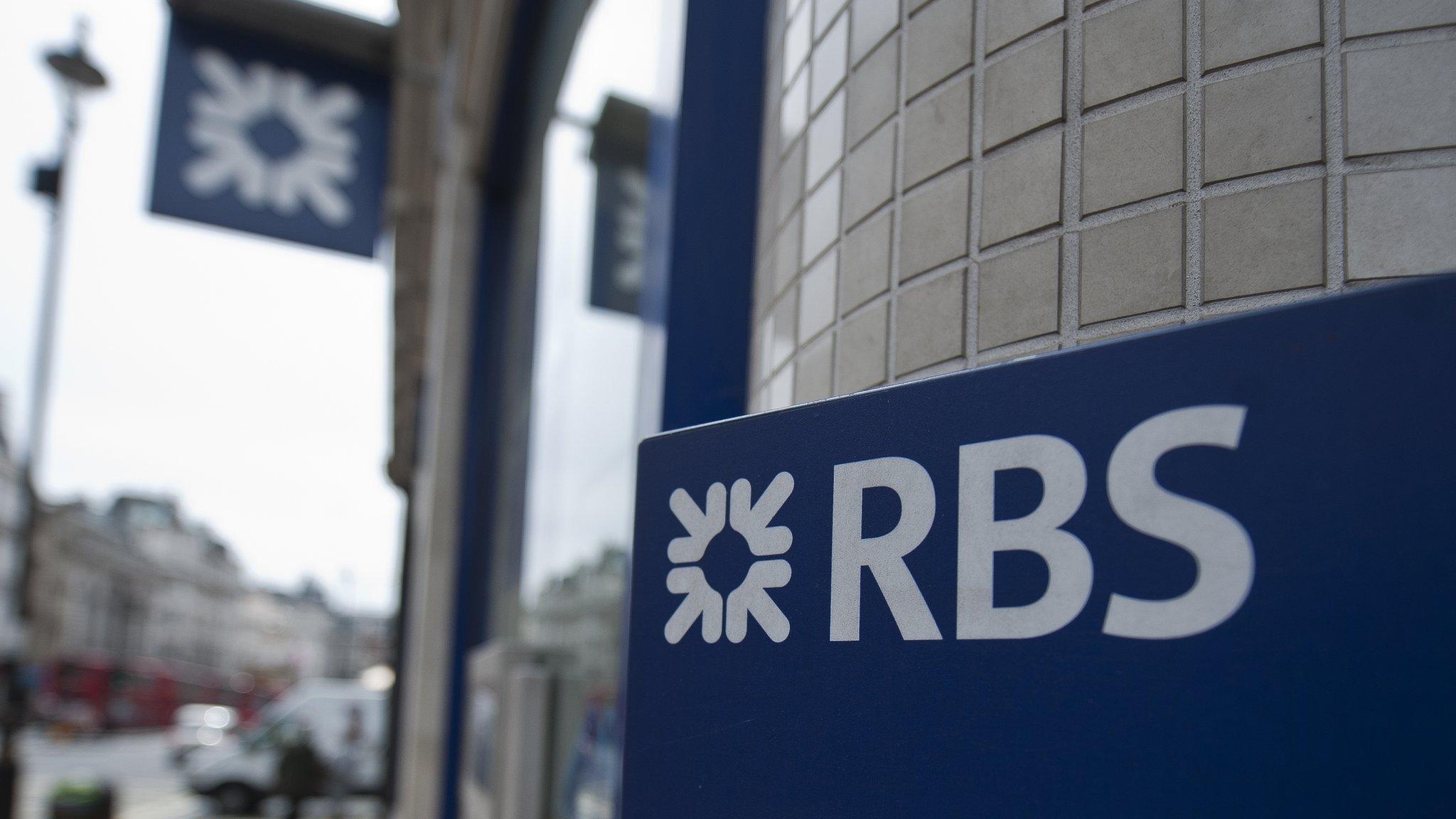RBS 'clean-up' to push it into 2015 loss
- Published

A "clean-up" plan announced by RBS is set to hit annual profit by £2.5bn and will push it into a loss for 2015.
In a statement,, external RBS said it was setting aside another £500m to pay for PPI claims and £1.5bn for US litigation.
In addition, the taxpayer-backed bank will write down £498m from its private bank Coutts.
"I am determined to put the issues of the past behind us and make sure RBS is a stronger, safer bank," chief executive Ross McEwan said.
"We will now continue to move further and faster in 2016 to clean up the bank and improve our core businesses."
The bank is also speeding up a plan to make payments into its pension fund to help deal with the £4.2bn deficit. The fund has 220,000 members and has been closed to new ones since 2006.
RBS is 73% owned by the government as a result of a bailout during the financial crisis.
It has not made an annual profit for seven years and is due to report results on 26 February.
Shares in RBS fell more than 5% in early trading, but then recovered to close down 2% at 255.7p.

Analysis: Kamal Ahmed, BBC economics editor
When you are about to sell the house, it's always worth a good clean up before potential customers arrive for a poke around.
That's what's happening at RBS and is what this morning's announcement is all about. George Osborne, the chancellor, is keen to off-load the government's 73% stake in the bank over the course of this Parliament.
Ross McEwan is clear today that he wants to put "legacy issues" behind the bank. That's shorthand for the collapse of the bank in 2008.
The largest of those are the legal actions in the US connected to the failure of mortgage products.
RBS's share price, at around 260p, is still a long way from 502p, considered to be the "in price" the government paid for its stake. The share price has sunk by almost a third in the past year.
Clean up, yes, but investors will need to see an improved performance from the bank before that share price starts rising again.


Ross McEwan has been chief executive of RBS since 2013
On a conference call Mr McEwan refused to answer questions about what the measures meant for the sale of the government's stake in the bank.
But he said that he thought the bank's provisions for mis-selling PPI were now over.
"Based on what we know today, hopefully this is the final provision. Hopefully it is the end... this is it," he said. The bank's total costs for the scandal are now £4.3bn.
The PPI policies were supposed to protect people against loss of income or sickness, but were often inappropriate. Across the industry, more than £20bn has been paid to more than 10 million consumers.
Analysts warned that this had negative implications for Lloyds, the bank that has paid out the most for the scandal so far.
'Significant extra charges'
But Citigroup warned that this was not the end of the matter for RBS.
"We still see significant additional litigation charges in 2016, on top of the charges that have been announced today," the bank said in a research note.
In addition, it expects earnings to be hit by the introduction of the UK bank tax, as well as continued low interest rates, because this affects its ability to profit from assets.
Alex Potter from Mirabaud Securities said: "I think what's worrying the market is the fact that there is still no provision for a deal with the US's Federal Housing Finance Agency, which has so far imposed the biggest fines."
The bank is not allowed to put money aside until it is in substantive discussions with the regulator.
"I think this means no further stake sale this year [by the UK government] unless they suddenly announce a deal in the US," Mr Potter added.
- Published1 December 2015

- Published1 December 2015
- Published19 November 2015
